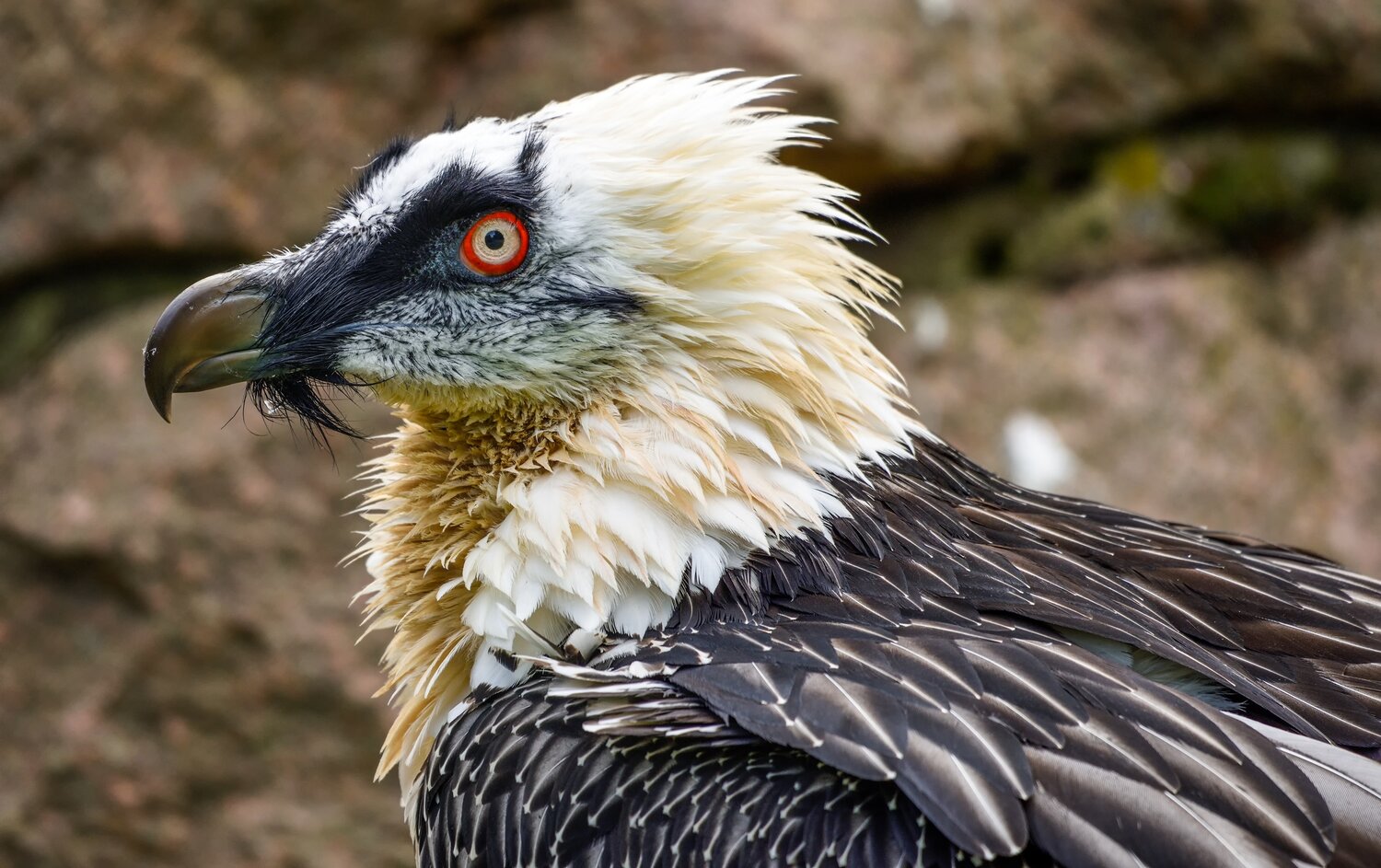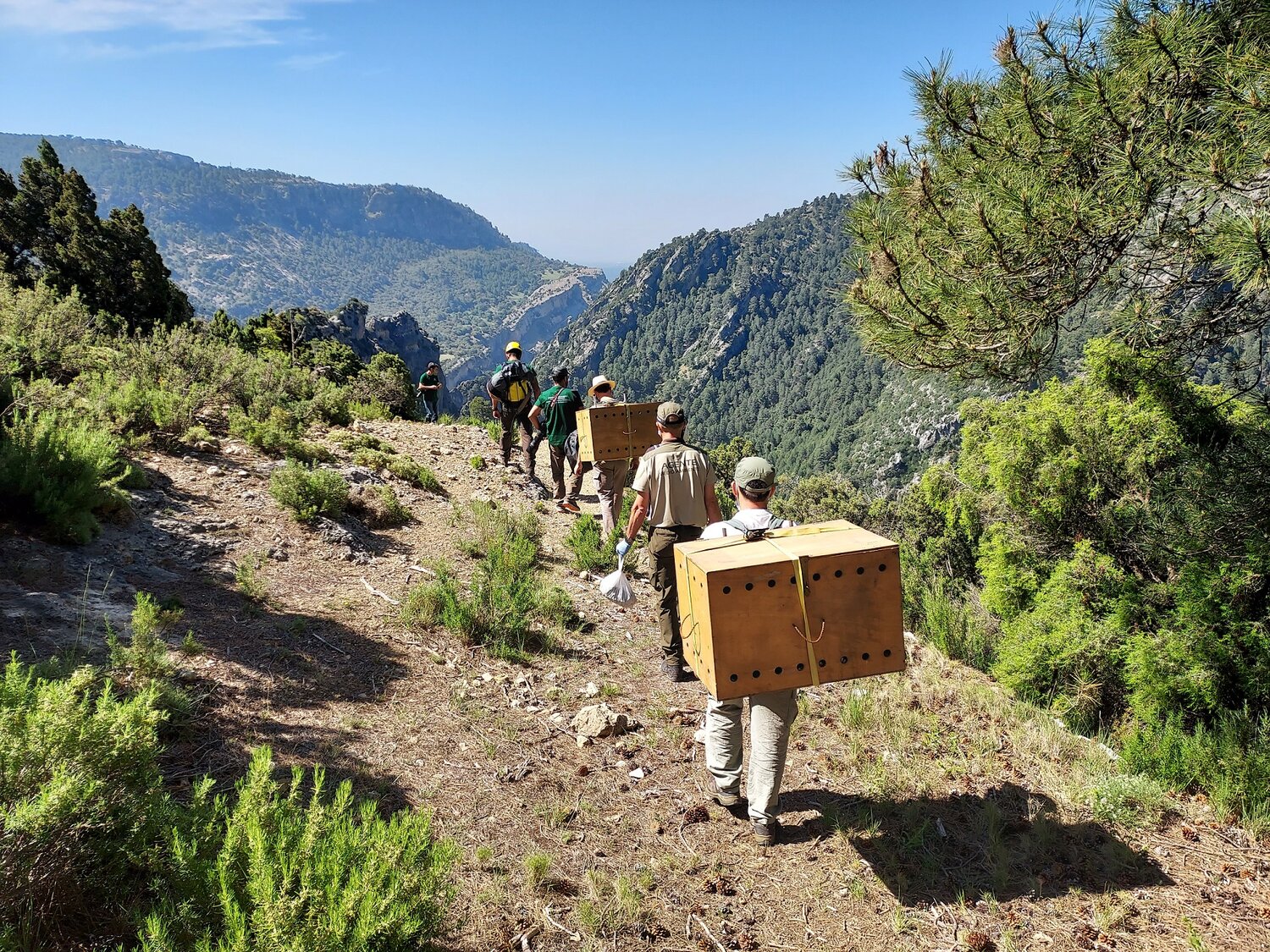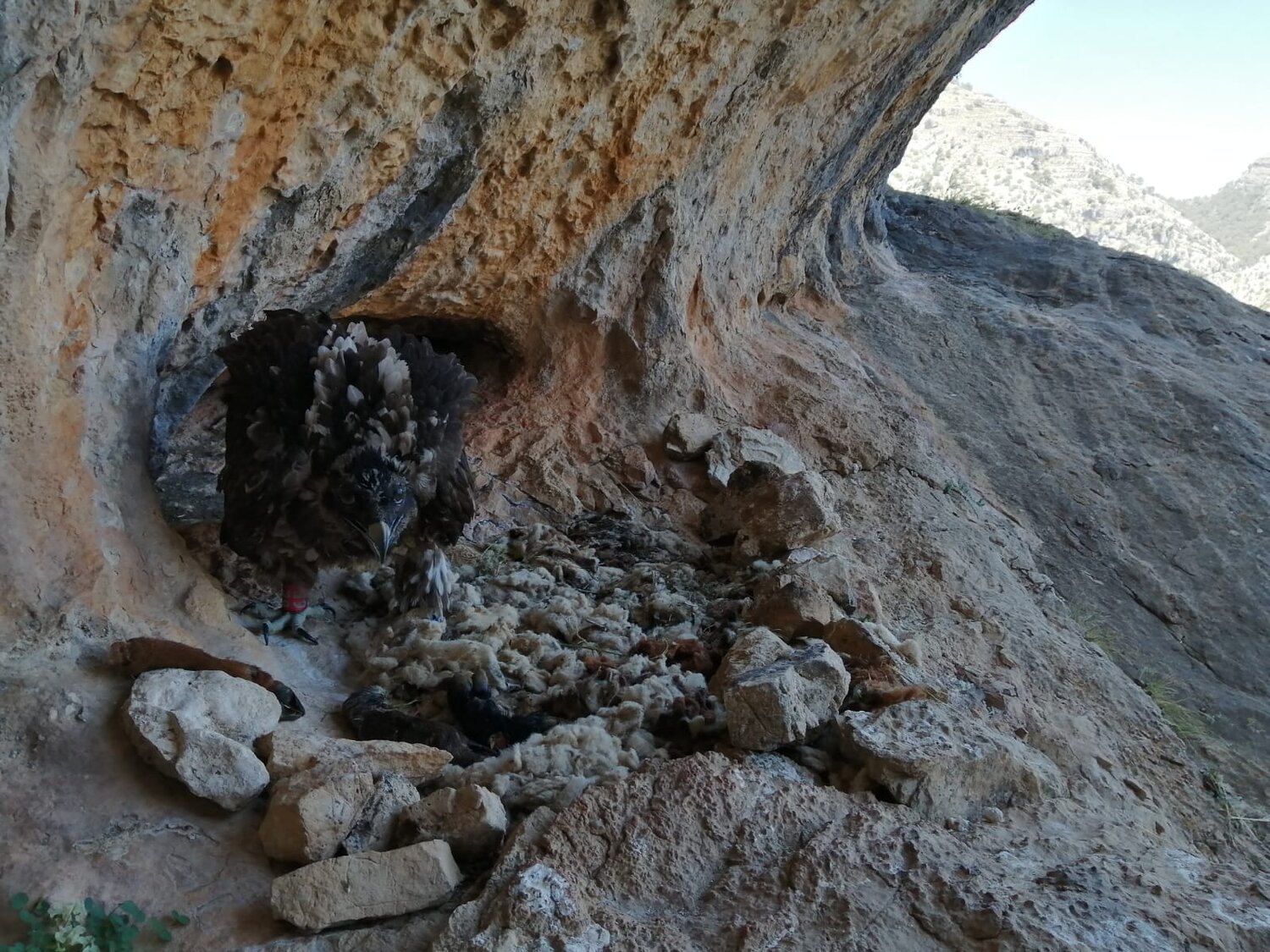For more than 30 years the Zoo and Tierpark Berlin have been part of the international project to reintroduce the bearded vulture in Europe. This memorable bird was once extinct in the Alps and Carpathians – in the past decades, 21 young bearded vultures from Berlin were released in their natural habitat. Now a young bearded vulture from the Zoo is released into the wild again.
The bearded vulture called Quercus hatched on March 6, 2021 at Zoo Berlin was able to start its journey into the natural habitat last weekend – despite the corona-related restrictions. Yesterday the young bird from Berlin was released into its new home together with a conspecific in the Sierra de Castril Natural Park in Andalusia, around 2,600 km away. There is only an extremely small time window available for the resettlement: the animals have to arrive at their future nest when they are 90 to 100 days old. It is only during this period that they have developed sufficiently to no longer depend on the care of their parents, but not yet too old to recognize the new environment as their home. For the first time, they will be fed by the research team of the Vulture Conservation Foundation (VCF) before they will finally venture their first flights into the mountains. Experience has shown that bearded vultures hatched in zoos and animal parks find their way around well in their new environment.
As scavengers, they feed on dead animals and do not have to learn to hunt. "The reintroduction of the bearded vulture shows how important such partnerships are in species conservation," explains Zoo and Tierpark director Dr. Andreas Knieriem. "We have a common goal with the scientists there: creating a fascination for animals and nature while at the same time preserving habitats and securing a future for endangered animal species".
A few weeks ago, before its long journey, feather and blood samples were taken from the young bearded vulture to determine its sex, and the young bird was also ringed. “We are pleased that it worked out despite the current restrictions. We are very excited to accompany our animal on its new path from afar”, explains the zoological director of Zoo Berlin, Dr. Ragnar Kühne. All bearded vultures in the project will be provided with a GPS transmitter. The VCF team can thus document the life path of each individual bird. Last year, however, the species protection project had to experience a sad setback: The bearded vulture Dolomie, which hatched in Tierpark Berlin, was successfully released into the wild, but was found dead a few months later. An X-ray showed 15 shotgun pellets in the body, police investigations into the illegal shooting brought no results.
With a wingspan of up to 2.85 m, the bearded vulture is one of the largest bird of prey species in Europe. It lives mainly in mountainous regions above the tree line and creates clumps in rock niches. Bearded vultures play an important role in the ecosystem. They are also known as nature's sanitary police as the vultures play a pivotal role in eliminating carrion. Due to their very acidic stomach, bearded vultures can even digest bones.


